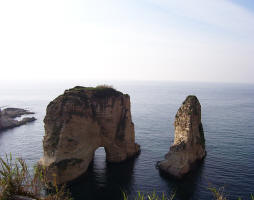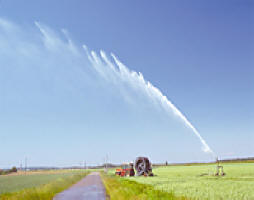 Online discussion on "water accounting & water for food" in preparation of the WWF8
Online discussion on "water accounting & water for food" in preparation of the WWF8
Water accounting [1] helps to identify bottlenecks and critical points in the water balance where actions would be have the most impact. The World Water Council Member initiative on water accounting for decision making in the agricultural sector lead by FAO in cooperation with[2] UNESCO-IHE, UNESCO-WWAP, IWMI, ICID and DWFI aims to raise the profile of water accounting for decision making and demonstrating the value added it can bring in smart planning processes in water management and water governance. The main objective of this initiative is to initiate a process to promote the use of water accounting through a process consisting of expert consultations, policy level interactions, and the development of a White Paper on Water Accounting for decision making in the agricultural sector. The White Paper will be launched at the 8th World Water Forum in March 2018.
This initiative contributes to the work plan of
the Global
Framework on Water Scarcity.
The
initiative partners aim to consult broadly to gather evidences on why and how
“water accounting” can help decision making and planning, in particular to
manage water scarcity at sectoral level.
We invite you to join the online consultation
supported by a series of webinars presentations to be organised between the 9th
of June and the 21st of July.
More details will be provided on Friday 9 June. Participants would include experts and people interested in learning more about water accounting.
The
discussion facilitated by FAO and the Technical Network on Water will be framed
on the basis of your contributions and questions. Please let us know your interest and
questions by filling the survey
before Friday 9 June.
The discussion will be started with a webinar on “water Accounting to manage water scarcity in a context of global changes” on the 12 of June (details will be sent to people registered).
For more information
about the initiative or the online discussion please contact : Domitille.vallee@fao.org
and Theodora.fetsi@fao.org.
PS : More about the content of the discussion (9 June to 21 July)
- What is water accounting, about the tools/approaches that can be used and for whom they correspond,
- Why it is important to carry out water accounting and how it help decision making, trade-off resolution,
- How it can help investment planning and management of water scarcity for water for food,
- How it can help reporting at country or sub country level on important global engagements as the SDGs
[1] Food
and Agriculture Organization of the United Nations (FAO); UNESCO Institute for
Water Education (UNESCO-IHE), UNESCO World Water Assessment Program
(UNESCO-WWAP),International Water Management Institute (IWMI), ICID
International Commission on Irrigation and Drainage (ICID), Robert B. Daugherty
Water for Food Global Institute at the University of Nebraska (DWFI).
[2] Water
accounting refers to the systematic study of the hydrological cycle and the
current status and future trends in both water supply and demand. Beyond the
simple accounting of volumes and flows, it also focuses on issues relating to
accessibility, uncertainty and governance of water.Therefore, Water Accounting is
a critical tool to support any initiative aiming at addressing the challenges
of water scarcity. Water auditing goes a step further than water
accounting by placing trends in water supply, demand, accessibility and use in
the broader context of governance, institutions, public and private
expenditure, laws, and the wider political economy of water in specified
domains. (FAO, 2016)
| Contact information |
Domitille vallee
(email: Domitille.vallee@fao.org) |
|---|---|
| News type | Inbrief |
| File link |
https://www.surveymonkey.com/r/WaterAccounting-Poll |
| Source of information | FAO |
| Subject(s) | POLICY-WATER POLICY AND WATER MANAGEMENT |
| Geographical coverage | France |
| News date | 08/06/2017 |
| Working language(s) | SPANISH , FRENCH , ENGLISH |
 you are not logged in
you are not logged in





